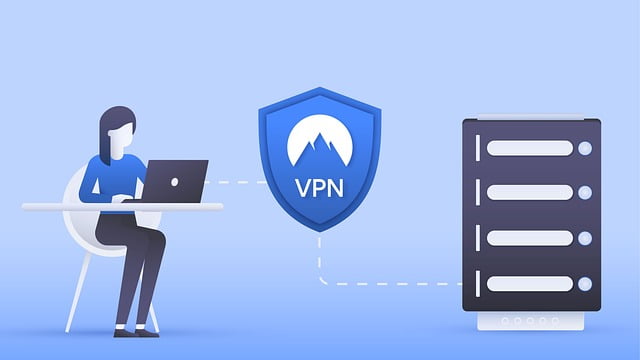CCNA Routing and Switching vs. CCNAX: Key Differences

CCNA Routing and Switching vs. CCNAX: Key Differences, Certification Paths, and Career Impact highlights the contrast between Cisco’s traditional certification route and its accelerated option. CCNA Routing and Switching is a two-part exam, offering a gradual learning process, while CCNAX combines both parts into a single, intensive exam for faster certification.
Introduction to CCNA Routing and Switching vs. CCNAX
What is CCNA Routing and Switching?
CCNA Routing and Switching is a widely recognized Cisco certification that covers fundamental networking concepts such as IP addressing, routing protocols, switching, and network troubleshooting. The certification path is typically divided into two exams: ICND1 (Interconnecting Cisco Networking Devices Part 1) and ICND2 (Part 2), giving candidates a thorough understanding of routing and switching technologies.
What is CCNAX?
CCNAX, or Cisco Certified Network Associate Accelerated, is an alternative, fast-track certification option. It combines both ICND1 and ICND2 into a single, more intensive exam. The CCNAX option is designed for those who already possess some networking knowledge and are seeking a quicker certification route by covering all the same content in one accelerated exam.
How do they differ in structure and focus?
The main difference lies in the exam structure and pacing. CCNA Routing and Switching splits the content into two parts, allowing for a more gradual learning curve, making it ideal for beginners or those new to networking. CCNAX, by contrast, is a single, comprehensive exam, best suited for individuals with prior networking experience looking to fast-track their certification.
Certification Path and Training Overview
What are the differences in exam structures for CCNA Routing and Switching vs. CCNAX?
The CCNA Routing and Switching certification path typically consists of two separate exams: ICND1 (100-105) and ICND2 (200-105). This allows candidates to break down their learning into two phases, focusing on foundational networking skills first, and then advancing to more complex topics.
In contrast, CCNAX combines both ICND1 and ICND2 into a single, comprehensive exam (200-125), covering the same content but in one accelerated session.
Is CCNAX faster to complete than CCNA Routing and Switching?
Yes, CCNAX is faster because it condenses the material of two exams into one. This makes it a time-efficient option for those with prior networking experience or those looking to fast-track their certification process. However, this also means that the study preparation for CCNAX is more intensive, as it covers all topics in one go.
How does the accelerated CCNAX exam compare to traditional CCNA certification exams?
While both paths cover the same topics, CCNAX presents the material in a more condensed format, requiring candidates to master both foundational and advanced concepts simultaneously. For those who prefer a structured learning progression, CCNA Routing and Switching might be more suitable, while CCNAX is geared towards individuals who are comfortable with a faster-paced, intensive exam preparation process.
Skills and Knowledge Covered
Which topics are covered in CCNA Routing and Switching that may be omitted in CCNAX?
In terms of content, CCNA Routing and Switching and CCNAX cover the same core topics, including IP addressing, routing protocols (such as OSPF and EIGRP), switching, VLANs, network security, and troubleshooting. Since CCNAX is an accelerated version, no significant topics are omitted, but the depth of explanation and focus on individual topics may differ due to the condensed exam structure. CCNA Routing and Switching, spread across two exams, allows for a more segmented, in-depth exploration of each subject.
Does CCNAX adequately prepare candidates for networking roles in comparison to CCNA Routing and Switching?
Yes, CCNAX covers the same content as the two-part CCNA Routing and Switching track, so it prepares candidates equally well for networking roles. However, the intensity of preparation may vary since CCNAX requires a faster-paced study regime. If candidates already have networking experience or are comfortable learning in a compressed timeframe, CCNAX can provide an adequate foundation for roles like network administrator or engineer.
Are there specific advantages to choosing one over the other for learning network fundamentals?
- CCNA Routing and Switching offers a more gradual approach, which is advantageous for those new to networking. Breaking the content into two exams allows for better retention and mastery of the material in stages.
- CCNAX, on the other hand, provides a faster route to certification, which can be ideal for those with prior knowledge or a need to quickly certify. However, it may require more intensive preparation and a broader understanding of networking concepts upfront.
Difficulty Level
Is CCNAX more difficult than the CCNA Routing and Switching exams?
Yes, CCNAX is generally considered more difficult because it condenses the material from the two-part CCNA Routing and Switching exam (ICND1 and ICND2) into one single exam. This makes it more challenging for candidates as they must retain and master a larger amount of content at once, including foundational and advanced topics, without the gradual learning curve provided by the two separate exams in CCNA Routing and Switching.
How does the intensity of the accelerated learning affect exam preparation?
The accelerated nature of CCNAX requires a more intensive preparation process. Candidates must be prepared to cover all topics in a short amount of time, which can be overwhelming, especially for beginners. This requires a solid study plan and a good grasp of networking fundamentals before starting the certification process. In contrast, CCNA Routing and Switching allows for more focused study, with two distinct exams covering foundational and advanced material separately, giving candidates time to better absorb the content and gradually build their knowledge.
Career and Job Opportunities
Which certification is more recognized in the industry: CCNA Routing and Switching or CCNAX?
Both CCNA Routing and Switching and CCNAX are equally recognized in the industry since they validate the same set of skills and knowledge. Employers don’t typically differentiate between the two certifications because both lead to the same CCNA credential. What matters is the knowledge and hands-on experience demonstrated by the certification, not the path taken to achieve it.
Can CCNAX certification be a shortcut to landing network administration roles?
Yes, CCNAX can serve as a faster route to certification and may be seen as a shortcut for individuals with prior networking experience. Since CCNAX consolidates the material of two exams into one, it allows candidates to get certified more quickly. However, the accelerated nature of the exam means it’s best suited for those who are already somewhat familiar with networking principles and can handle the fast pace.
What job roles are available for those certified in CCNA Routing and Switching compared to CCNAX?
Since both paths lead to the same CCNA certification, the job roles available are identical for those certified in CCNA Routing and Switching or CCNAX. Common job roles include:
- Network Administrator
- Network Engineer
- Systems Engineer
- Network Support Technician
- IT Support Specialist
Both certifications validate your ability to install, configure, and troubleshoot networks, making them valuable for entry- to mid-level network administration and support roles. The choice of path mainly affects your preparation experience, not your career prospects.
Cost and Time Investment
What are the cost differences between CCNA Routing and Switching and CCNAX certifications?
The CCNA Routing and Switching certification typically requires candidates to take two separate exams: ICND1 and ICND2, each of which comes with an exam fee. This means candidates will pay for both exams, effectively doubling the total exam cost compared to taking the single CCNAX exam. While prices can vary by region and testing center, the cost for each ICND exam generally ranges around $165-$200 per exam, making the total for both approximately $330-$400.
On the other hand, the CCNAX certification consists of a single exam, which usually costs between $325-$350, slightly lower or on par with the combined cost of the two-part exam route. However, it’s a single exam fee rather than paying for two separate exams.
Does CCNAX offer a more cost-effective and quicker path to certification?
Yes, CCNAX is a more cost-effective and quicker route to certification for candidates who are prepared for its accelerated structure. Since candidates only need to take one exam instead of two, this reduces the overall time spent studying and testing. The single fee also makes it slightly cheaper than paying for two separate exams. However, while it offers a faster path, candidates need to ensure they are ready for the more intensive preparation required for CCNAX compared to the gradual study pace allowed in the CCNA Routing and Switching path.
Thus, while CCNAX may save both time and money, it requires a more rigorous upfront investment in learning all the material at once.
Practical Application
Which certification provides better hands-on training and practical networking skills?
Both CCNA Routing and Switching and CCNAX cover the same material and hands-on training objectives. They are designed to build practical networking skills, including configuring, managing, and troubleshooting networks. However, CCNA Routing and Switching, with its two-part structure (ICND1 and ICND2), may provide a better gradual learning experience for those who want more time to focus on real-world application and hands-on practice. The two-exam route allows learners to consolidate foundational skills before moving on to advanced topics.
CCNAX, on the other hand, compresses both phases into one exam, requiring candidates to grasp the hands-on aspects more quickly. Those with prior experience might find CCNAX sufficient for developing practical skills, but for beginners, the extra time and pacing offered by the two-exam CCNA Routing and Switching track could be more beneficial for hands-on learning.
Are there specific scenarios where CCNA Routing and Switching is preferred over CCNAX?
CCNA Routing and Switching is often preferred for individuals who are new to networking or those who prefer a more gradual approach to mastering networking concepts and skills. The split exams allow candidates to focus on foundational skills first and build upon them in a second phase. This is particularly useful for those needing more time for hands-on practice between exams.
CCNAX may be preferred for professionals who already have some networking background or for individuals who need certification quickly and are comfortable with the faster pace. In this case, CCNAX provides a streamlined path to certification without sacrificing essential knowledge, but it requires more intensive upfront preparation.
Thus, CCNA Routing and Switching is generally recommended for those looking for a more comprehensive learning experience with hands-on practice in between exams, while CCNAX is better suited for experienced candidates seeking a quicker certification route.
Exam Preparation and Study Resources

- What are the best resources for preparing for CCNA Routing and Switching vs. CCNAX?
- For CCNA Routing and Switching, there are extensive resources available such as Cisco Press books, official Cisco training courses, online platforms like Udemy and Coursera, as well as practice labs using tools like Cisco Packet Tracer and GNS3.
- For CCNAX, you’ll find a similar set of resources, but since it’s an accelerated exam, focus more on condensed study guides, boot camps, and intensive practice exams tailored for the faster-paced curriculum.
- Are there different study approaches for CCNA Routing and Switching and CCNAX due to their exam formats?
- CCNA Routing and Switching typically involves a more gradual study path, allowing students to go deeper into topics across two exams (ICND1 and ICND2).
- CCNAX requires a more accelerated study approach, where candidates must be prepared for a broader range of topics in a single, fast-paced exam. This often involves intensive boot camps or crash courses to quickly absorb material.
Final Recommendation: Which is Better?
CCNA Routing and Switching and CCNAX are valuable certifications, but the best choice depends on your career goals, time availability, and cost considerations.
When to Choose CCNA Routing and Switching
- For Beginners: If you are new to networking or just starting out, CCNA Routing and Switching provides a solid foundation in networking fundamentals. It is ideal for entry-level network roles and helps you build a strong base for future learning.
- Cost and Time: CCNA Routing and Switching may be more cost-effective and require less time to prepare compared to more comprehensive certifications. It’s a good choice if you need to quickly gain credentials and start working in the field.
- Career Path: If your goal is to start in network administration or support roles and you plan to advance to more specialized certifications (like CCNP), CCNA Routing and Switching is a suitable first step.
When to Choose CCNAX
- Advanced Knowledge: If you already have some networking experience or are familiar with Cisco technologies, CCNAX offers a broader scope that includes modern networking practices, such as network automation and programmability. It’s suitable for those looking to stay current with industry trends.
- Specialization: If your career goals include specializing in advanced Cisco technologies or roles involving network automation and cloud solutions, CCNAX aligns better with these objectives. It prepares you for specialized roles and potentially higher-level positions.
- Investment: If you’re willing to invest more time and resources into learning advanced concepts and want a certification that reflects the latest industry developments, CCNAX is a better choice. It can provide greater career advancement opportunities and might have a higher return on investment in terms of career progression.
Summary
- Choose CCNA Routing and Switching if you’re starting your career, need a foundational certification, or have time and budget constraints. It’s a well-recognized credential that prepares you for entry-level roles and further Cisco certifications.
- Choose CCNAX if you have existing networking experience, want to focus on advanced Cisco technologies, or aim for specialized roles in modern networking. It’s suitable for those seeking to advance quickly in the field and stay updated with current technology trends.
In conclusion, both certifications have their strengths, and the best choice depends on your current skills, career aspirations, and readiness to invest in furthering your education.
Also read: Microsoft Exchange Server vs Kolab: Which Platform is Best?
Also read: AppDynamics vs Splunk: A Comprehensive Comparison
FAQs:
1. What’s the difference between CCNA Routing and Switching and CCNAX?
CCNA Routing and Switching: This certification focuses on fundamental networking concepts related to routing and switching, including network fundamentals, LAN and WAN technologies, and infrastructure services. It is often seen as the foundational Cisco certification.
CCNAX: This term refers to the latest iteration of Cisco’s CCNA exams, which covers a broader range of topics including network automation, programmability, and advanced Cisco technologies. It reflects the evolving landscape of networking.
2. Is CCNAX easier or harder than CCNA Routing and Switching?
CCNA Routing and Switching: Generally considered an entry-level certification that is manageable for those new to networking. It covers fundamental concepts and is designed to be an approachable starting point.
CCNAX: May be perceived as harder due to its broader and more advanced content, including new technologies and practices. It requires a more comprehensive understanding of current networking trends and technologies.
3. Which certification is better for beginners: CCNA Routing and Switching or CCNAX?
CCNA Routing and Switching: Better for beginners. It provides a solid foundation in networking basics and prepares you for entry-level network roles. It is typically easier to prepare for if you are new to networking.
CCNAX: While it covers a wider range of topics, it might be overwhelming for complete beginners. It is more suitable for those with some background in networking or who are ready to dive into more advanced topics.
4. How long does it take to complete CCNAX vs CCNA Routing and Switching?
CCNA Routing and Switching: Preparation time typically ranges from 3 to 6 months, depending on your prior knowledge and study time.
CCNAX: Preparation time might be longer, generally ranging from 4 to 8 months, as it covers a broader scope of topics and includes more recent technological advancements
5. Are CCNAX and CCNA Routing and Switching equally recognized in the job market?
CCNA Routing and Switching: Widely recognized and respected in the job market as a foundational networking certification. It is well-regarded for entry-level positions and is a strong credential for those starting their careers.
CCNAX: Also recognized in the job market, but it reflects more current technologies and practices. It might be more relevant for advanced roles or positions requiring knowledge of the latest networking trends.
6. Is CCNAX a good shortcut for network certification?
CCNAX: Not necessarily a shortcut, but it is a comprehensive certification that covers a wide range of current networking topics. If you’re already familiar with networking basics, it could help you achieve a broader understanding and faster advancement in your career. However, it is not a substitute for foundational knowledge; having a good grasp of fundamental concepts is still essential.
Loading newsletter form...






